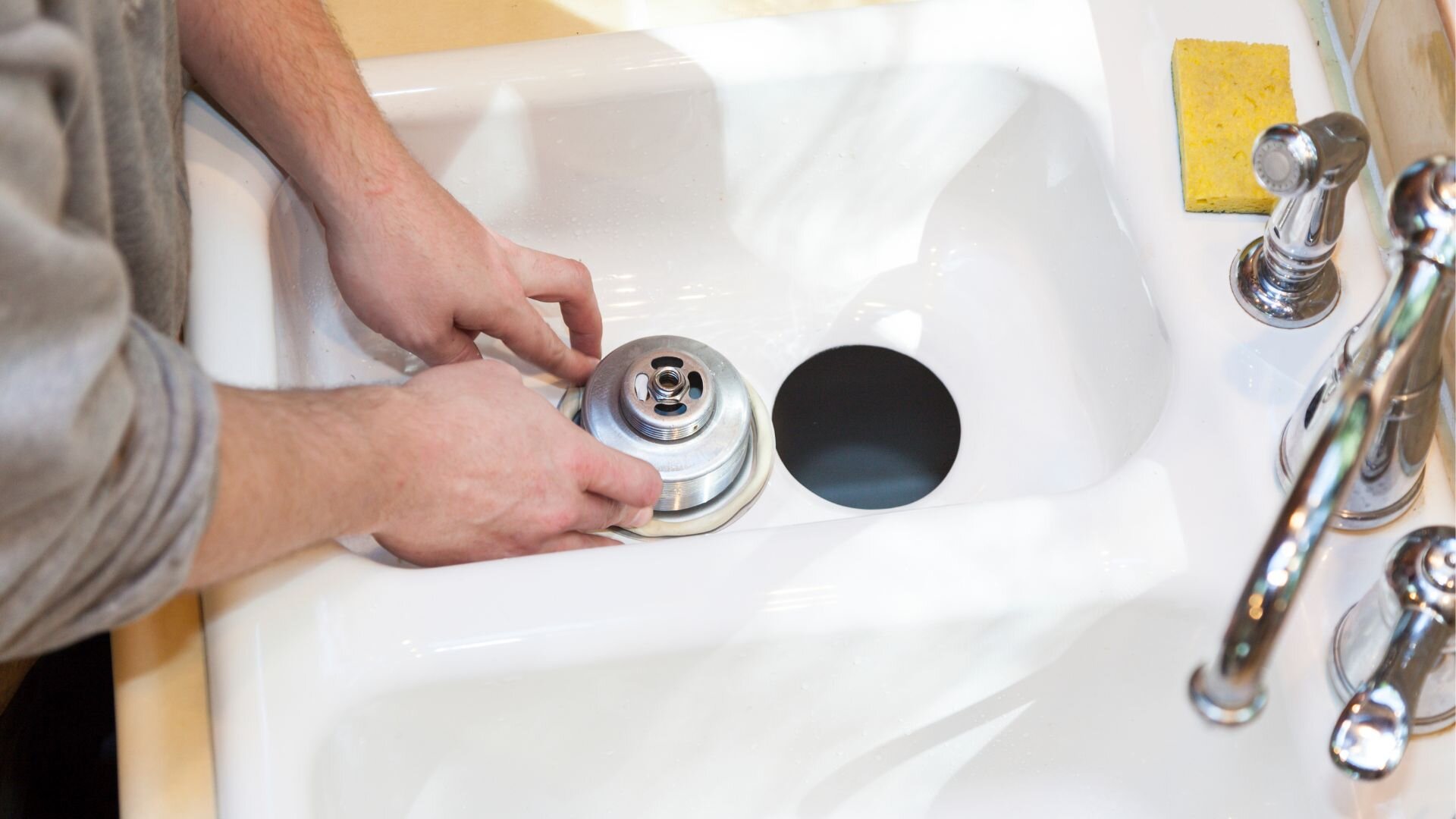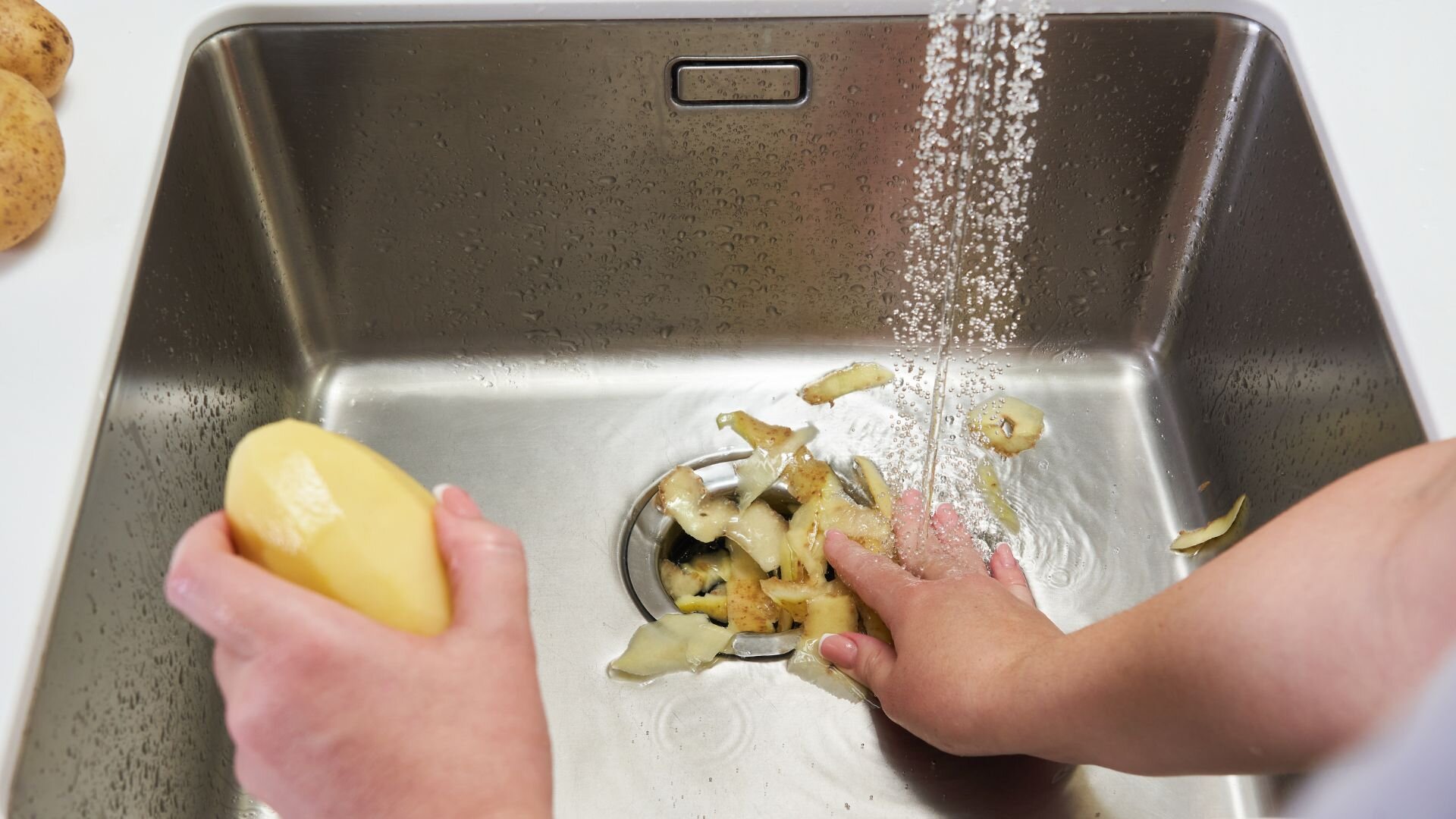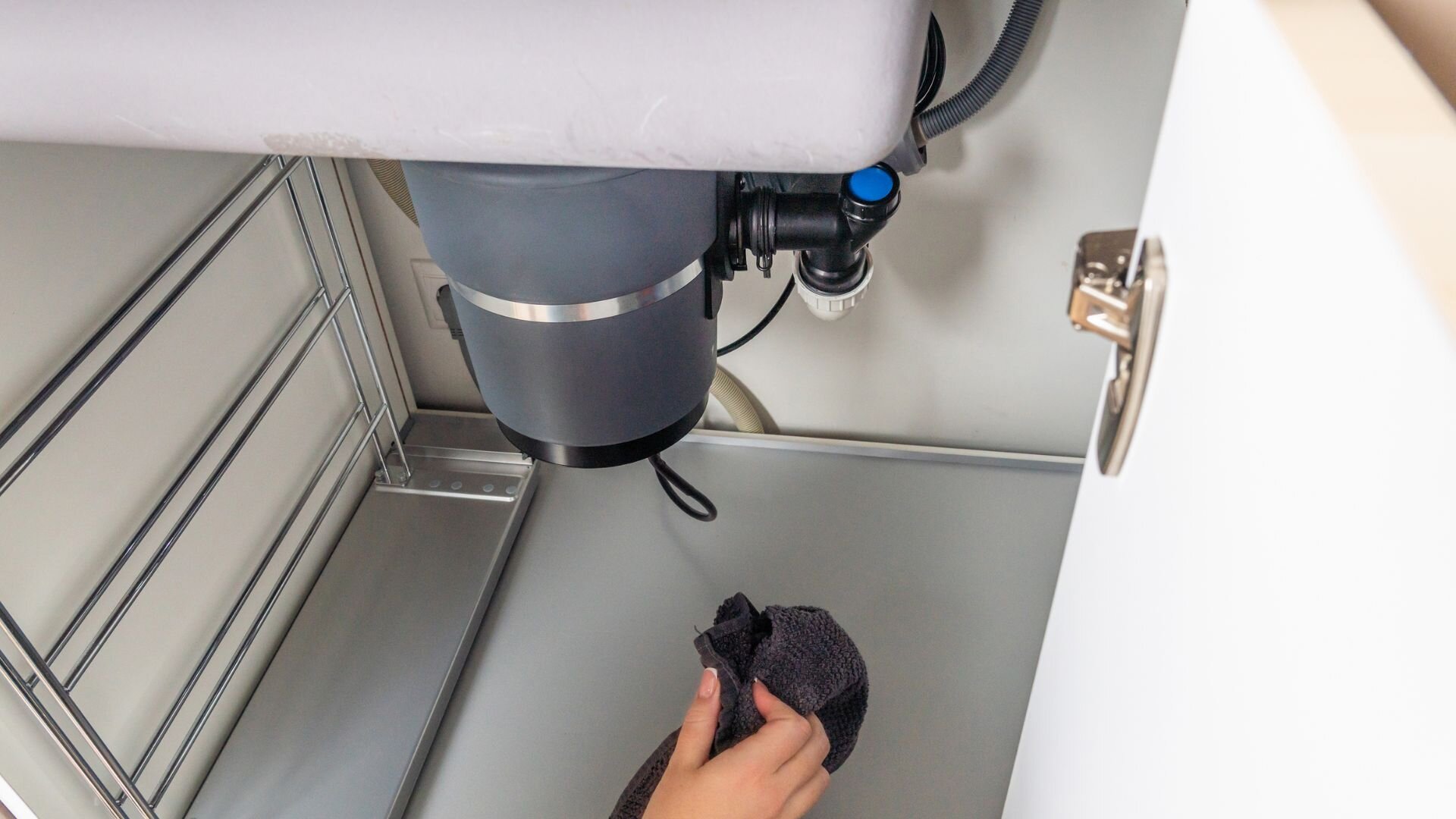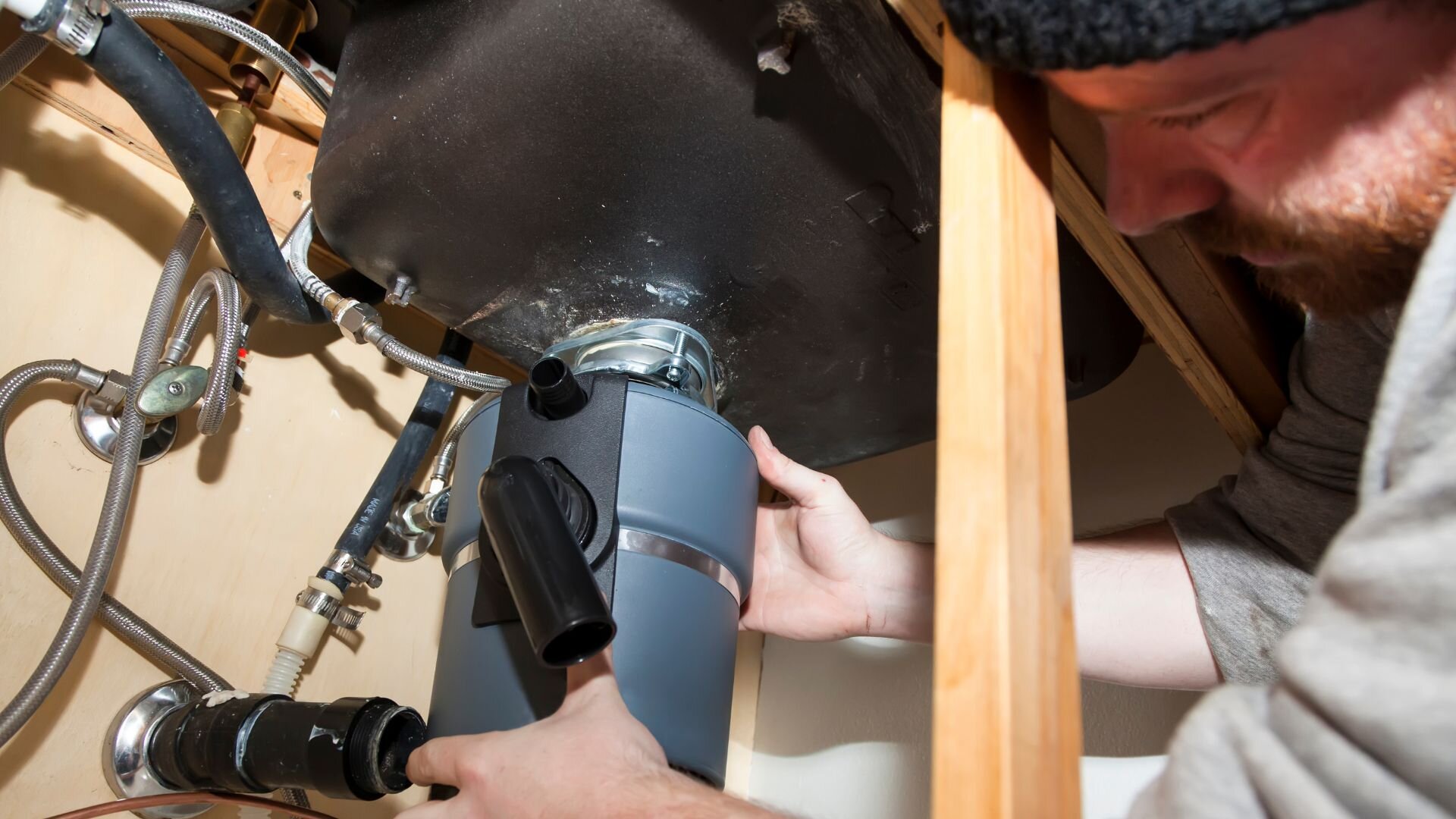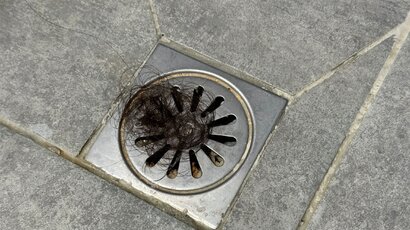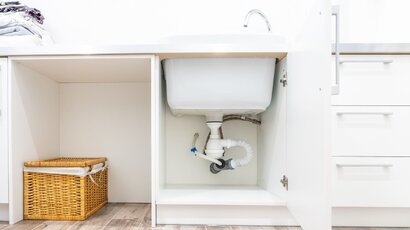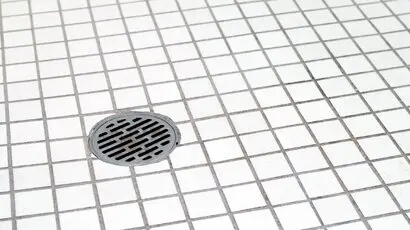Garbage disposals have really changed the way we handle food waste in our kitchens, making it super convenient. But, they can also pose some plumbing risks if not used and looked after properly. When misused, they might cause drain leaks, leading to water damage, mould issues, and expensive repairs that nobody wants.
Let’s dive into the complex relationship between garbage disposals and drain leaks. You’ll get useful insights into what causes these leaks, pick up practical tips to prevent them, and find out effective solutions for any issues you might be facing.
By understanding this common plumbing problem, you can take proactive measures to safeguard your home and enjoy the benefits of garbage disposal without unwanted headaches.
Garbage Disposal Misuse and Drain Leaks
The misuse of garbage disposals is a leading cause of drain leaks in kitchen plumbing. Many people mistakenly believe that disposals can handle any type of food waste, but this is not the case. When inappropriate items are put down the disposal, such as fibrous vegetables (e.g., celery, corn husks), grease, or bones, they can create significant problems for your plumbing system.
![]()
These problematic items can accumulate within the disposal and the connected pipes, leading to clogs and blockages. As the waste builds up, it puts additional strain on the pipes, causing them to wear down more quickly. Over time, this increased pressure can result in cracks or leaks in the pipes, allowing water to escape and damage your cabinets, flooring, and other areas of your kitchen.
Another frequent mistake is either overusing the disposal or failing to run enough water while using it. Without adequate water flow, the ground-up waste can congeal, sticking to the pipe walls and eventually causing blockages.
To avoid these issues, be mindful of what you put down your garbage disposal and use it sparingly. Always run plenty of cold water before, during, and after using the disposal to help flush the waste through the pipes and prevent build-up. Following these simple guidelines can significantly reduce the risk of drain leaks caused by garbage disposal misuse.
Proper Garbage Disposal Usage
![]()
Be Selective About What You Put Down the Disposal
It’s important to be mindful of what you put down your garbage disposal to prevent clogs and damage. Avoid disposing of coffee grounds, eggshells, and starchy foods like pasta, rice, and potato peels, as they can accumulate and create blockages.
Instead, stick to soft, easily ground-up food items that won’t strain your disposal or pipes. Always remember to keep stringy, fibrous, or starchy waste out of your disposal to ensure its smooth operation.
Run Cold Water Before, During, and After Usage
Running cold water before, during, and after using your garbage disposal helps to lubricate the blades, making it easier for them to grind up food waste effectively. Additionally, the water flow flushes the ground-up waste through the pipes, preventing it from building up and causing clogs.
Perform Regular Cleaning and Maintenance
Regular cleaning and maintenance are essential to keeping your garbage disposal in top shape. One easy way to clean and freshen your disposal is to grind ice cubes or citrus peels, which can help remove built-up residue and eliminate unpleasant odours.
For a more thorough clean, create a mixture of baking soda and vinegar, let it sit in the disposal for a few minutes, and then rinse it away with hot water. Regular cleaning and maintenance will help ensure your disposal continues functioning efficiently and prevent potential leaks or malfunctions.
Benefits of Proper Garbage Disposal Usage
Following the guidelines for proper garbage disposal usage, you can enjoy numerous benefits for your kitchen plumbing system. First and foremost, correct usage reduces the risk of drain leaks and other plumbing issues that can be costly and time-consuming to repair. Additionally, by maintaining your disposal properly, you can save money and minimise stress in the long run by avoiding unnecessary repairs or replacements.
Signs of a Leaking Garbage Disposal
Leaks from your garbage disposal can wreak havoc in your kitchen if ignored. Spotting the warning signs early is key to tackling the problem quickly and reducing potential damage. Here are some common signs that your disposal might be leaking:
![]()
Puddles of Water Under the Sink
One of the most obvious signs of a leaking garbage disposal is tater puddles underneath your kitchen sink. If you notice moisture or standing water in the cabinet beneath your sink, your disposal or its connections are likely leaking.
Foul Odours
If you detect unpleasant smells from your sink or garbage disposal, it could be a sign of a leak. When water leaks from the disposal, it can create damp areas that promote mould growth and mildew, resulting in musty or foul odours.
Slow Draining
A leaking garbage disposal can cause your sink to drain slowly. If you notice that water is taking longer than usual to drain from your sink or backing up, it may be due to a leak in the disposal or its connections.
Unusual Sounds
If your garbage disposal makes unusual sounds, such as rattling or humming, it could indicate a problem with the unit or its connections. A loose or damaged part may cause these sounds, which can lead to leaks.
Identifying The Leak
To pinpoint the source of the leak, begin by visually inspecting the garbage disposal and connections. Check the hoses and pipes linking the disposal to your plumbing, looking for any wear, damage, or looseness. Tighten any loose parts and replace components showing visible damage.
Next, examine the garbage disposal unit itself. Look for cracks, holes, or other signs of damage on the outer casing. If you find any visible damage, the disposal will likely need to be replaced to prevent further leaks.
If you can’t locate the leak’s source or are unsure how to proceed, it’s best to contact a professional plumber. They have the expertise and tools necessary to accurately diagnose and repair leaks in your garbage disposal and plumbing system.
By being aware of these warning signs and promptly addressing any leaks, you can prevent more extensive damage to your kitchen and plumbing system, saving yourself time and money in the long run.
Fixing a Leaking Garbage Disposal
While minor leaks may be fixable with some DIY steps, it’s crucial to assess the severity of the issue and know when to call a professional.
![]()
Minor Leak Troubleshooting
Tightening Connections
- Locate the leak: Identify the source of the leak, whether it’s coming from the top, bottom, or sides of the disposal unit.
- Turn off the power: Ensure the disposal is unplugged or the circuit breaker is turned off for safety.
- Tighten connections: Use pliers or a wrench to tighten any loose connections, such as the mounting ring, drain pipe, or dishwasher hose connections.
Replacing the Gasket
- Remove the disposal: Follow the manufacturer’s instructions to detach the disposal unit from the sink.
- Inspect the gasket: Check the gasket (rubber seal) for wear, cracks, or damage.
- Replace the gasket: If necessary, purchase a new gasket compatible with your disposal model and replace the old one.
- Reassemble and test: Reattach the disposal unit, turn on the power, and check for leaks.
When to Call a Professional
While minor leaks may be addressable through DIY efforts, it’s advisable to call a professional plumber in the following situations:
- Persistent leaks: A more significant issue may require professional attention if the leak persists even after tightening connections and replacing the gasket.
- Substantial water damage: If the leak has already caused significant water damage or mould growth, it’s best to have a plumber assess the situation and prevent further damage.
- Age of the disposal: If your garbage disposal is old or has been experiencing frequent issues, it may be time for a replacement, which a professional best handles.
- Complex installations: If you’re dealing with a complex or non-standard garbage disposal installation, it’s recommended to have a professional handle the job to ensure proper installation and prevent future leaks.
Alternatives to Garbage Disposals
If you’re worried about possible drain leaks or just want to explore other ways to dispose of food waste, consider a few alternatives. Composting is a green option that transforms scraps into nutrient-rich garden soil. Traditional trash disposal works too, though it might mean more trips to the bin.
Protect Your Plumbing with Proper Garbage Disposal Usage
While garbage disposals offer a convenient way to manage food waste, they can also contribute to drain leaks if improperly used and maintained. Understanding the connection between garbage disposals and drain leaks and following best practices for usage and maintenance can help protect your plumbing system and avoid costly repairs.
If you encounter a leaking garbage disposal, address the issue promptly to minimise potential damage. And remember, if you need help with a plumbing problem, feel free to call a professional for assistance.
If you’re experiencing a leaking garbage disposal or any other plumbing issue in Melbourne, trust the experts at WP Plumbing. Our team of skilled and experienced plumbers is equipped to handle all your plumbing needs, from minor repairs to major installations.
Contact us today to schedule an appointment and enjoy the peace of mind that comes with reliable and efficient plumbing services.

